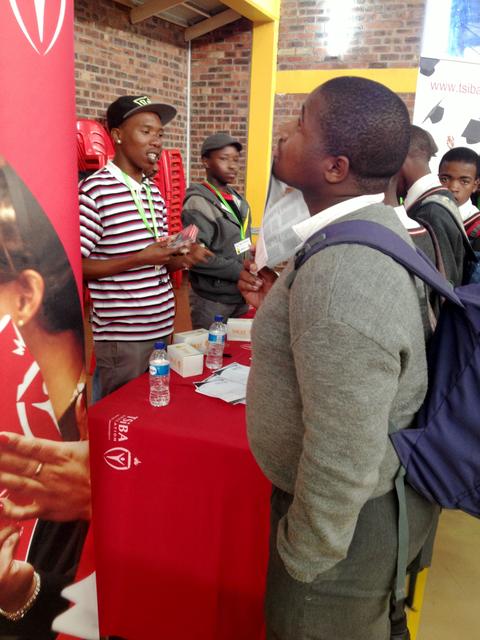
This years Careers Indaba, organised in partnership with Equal Education and SAEP, saw nearly 1000 leaners come though the doors of the Zolani Centre, all coming to gain valuable exposure to organisations, workshops and other important resources.
The aim on the Indaba is to provide learners with information that will assist them in making informed decisions; a fundamental step in fostering a mind set in the youth of South Africa of pro-active future orientated thinking. It is challenging to dream of a better future and to aspire to goals without knowing the realities of these goals and the opportunities that are available.

The annual Careers Indaba is a chance for leaners to obtain information on where to continue their studies, start working; find out about on the job training, as well as alternatives to studying through volunteer programs or internships. It gives them a chance to investigate their options and talk directly to the people who are able to guide them in the right direction. In addition Career Planet and Kayin from SAEP also offered workshops on CV building, interview techniques and personal development. Skills that are needed wherever your path takes you.
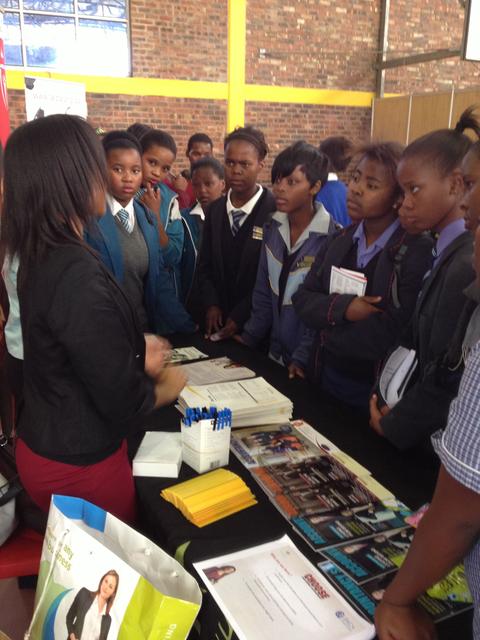
While protests on the freeway kept a few exhibitors away, it didn’t damper the spirit of the learners who came, and a few had this to say,
Kuhle, “I learnt that I have to be confident and choose a career that will require my talents and abilities.”
Zasipho, “I have learnt about my career, where to study, how and where to apply for bursaries and how to be successful in future.”
Ludwe, “I have learnt that even if you come from a poor family you can get a bursary and go further with your education.”
Sikelelwa, “I have learnt that education is your ticket to success and you have to have dreams in order to succeed. Everything you do is all about knowing what you truly want out of life.
Ngeke, “That you must know what you want and understand your chosen career. Understand the advantages and disadvantages of it.”
Anathi, “I have learnt that there are many opportunities for youth out there so there’s no excuse of not having money or being poor.”
Nosiphiwo, “I learnt that in order for me to achieve my dream career I need to focus on my studies so that I can get better results at the end of the year.”
The day would not have been possible without our amazing partnership with Equal Education and SAEP – big up to them!
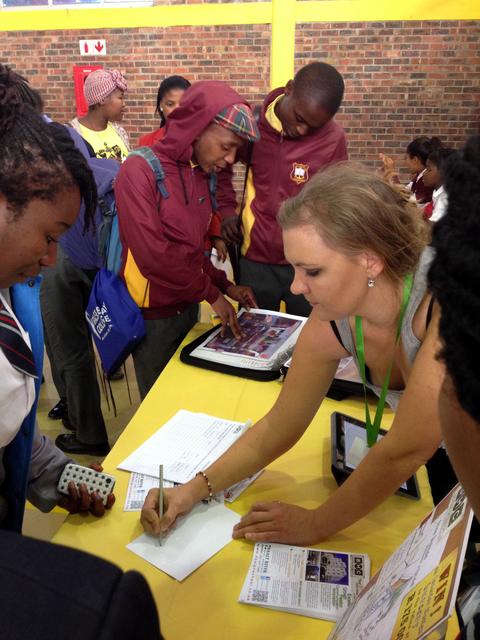
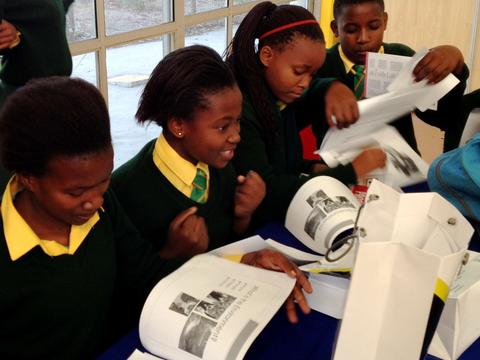
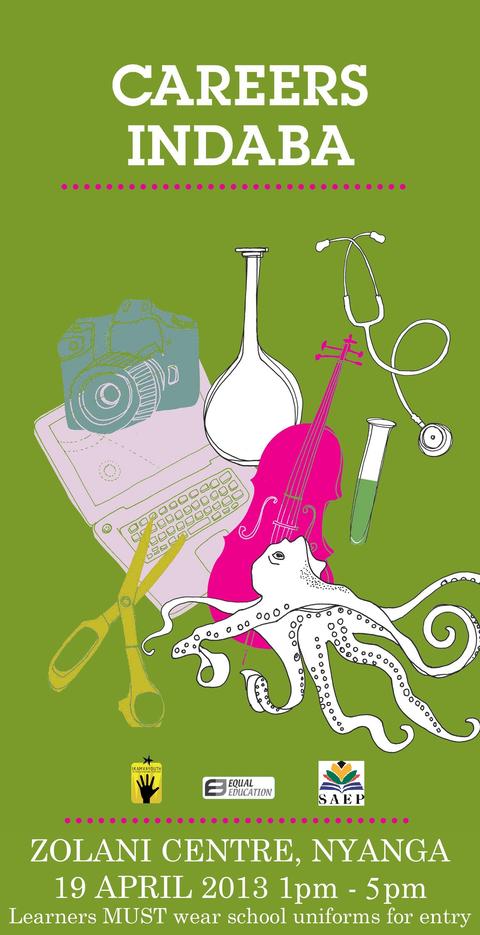
This week IkamvaYouth, Equal Education and the South African Education and Environment Project (SAEP) will host the annual Careers Indaba.
Businesses, NGOs, professionals, tertiary institutions and Further Education and Training colleges will run information stalls to grade 8-12 students from Khayelitsha, Nyanga, Makhaza, Strand, Kraaifontein, Masiphumelele and surrounding areas.
DATE: Friday, 19 April 2013
TIME: 13h00-17h00
VENUE: Zolani Centre, Sithandatu Avenue, Nyanga, 7750
ENTRY: free
Come wearing your school uniform!
Many learners face challenges when considering their tertiary studies. These challenges include insufficient access to information regarding academic and occupational options as well as affording the cost of further studies.
The Career Indaba provides assistance to learners making decisions about their future. Exhibitors will expose learners to a variety of careers paths and options. Learners will also have the opportunity to learn about scholarships and bursary programs that are available to them.
The programme will include workshops on CV writing, interviewing skills, personal development and study techniques.
For more information:
Marion Petersen
marion@ikamvayouth.org
m: 0798854388
t: 0214224306
Kate Wilkinson
kate@equaleducation.org.za
t: 0213870022
e: 0716824515
Lydia Wasilenko
lydia.eva@live.com
t: 0213870022

The Spirit of Youth programme is a one year learning experience for grade 11 learners from diverse backgrounds who see themselves as agents of positive change in South Arica. Spirit of Youth offers a platform for young people to grow a culture of volunteerism and to build a democratic society, In particular, Spirit of Youth facilitates the exploration of how challenges can be converted into opportunities. The programme includes activities that enable learners to dialogue with both leaders ad peers about the issues that concern them and about their future aspirations.
This is accomplished by creating and facilitating opportunities for participants to:
- Learn about their context- dialogue
- Develop a deeper understanding of themselves and SA’s complex challenges
- Channel energy into a positive direction
- Create an awareness of opportunities
- Foster a spirit of volunteerism
- Facilitate the creation of a vision for a better world
The Spirit of Youth programme was created in 2005 by the Gordon Institute of Business Science (GIBS), THE Johannesburg based highly regarded ‘business school for businesses. GIBS has partnered in Cape Town for Grade 11 learners from diverse school in and around Cape Town. The Cape Town programme is offered over eight Saturday (8am to 4pm) between March and October from Tsiba’s pinelands based campus
The first programme was on the 23rd of March 2013, we sent in three learners from Masiphumele Branch, they had to arrive at the campus at 8am. We asked the learners to take down notes and observe everything which will be taking place.
FEED BACK FROM LEARNERS
Sivuyisiwe Mbede: On arrival we were introduced to the Spirit of Youth facilitators that we will be working with, we took a trip to the slave lodge where we were taught about our history and slavery, after the tour and lesson the motivational speaker, Mr Mbulelo Yedwa talked to us and encouraged us to always focus on the positive side of our lives and never dwell on the past, he also told us that in order to achieve your dreams and goals you must work hard, and if you think success comes easily you are fooling yourselves.
We went back to the Tsiba campus for lunch, when we got there others were already there eating fancy food, we were told to eat old bread and drink water, we all complained and voiced ourselves, demanding to be treated fairly and equally, seeing our reactions, they later told us that it was a game and a test they wanted to see our reactions, they wanted to see whether we will be able to cope under such circumstances, in the end we all ate the same fancy food.
We discussed the trip, the lesson and the game. “I learned a lot from the first programme ad I am looking forward to the next programme’
Jacqualine Ncube: I enjoyed the first programme we attended at the Tsiba campus, I was mostly impressed with Mr Mbulele Yedwa. Mr Mbulelo grew up in hardships, but he has managed to make a succsess of his life, he studied at UCT and UWC and passed his degrees with flying colors, and now he is a HR manager at Eskom and managing 105 people.
‘I want to share with my fellow Ikamvanites the quote Mr Ydwa lives by because they truly inspired me.
- Sometimes a problem isn’t a problem, but the way you see the problem is the problem
- The mind that holds the problem has the key to the solution
- A thought can become something
- In a life you can choose to be a better person or a bitter person
- Liberation first then education later
- I use my voice and the Invoice follows
This man truly inspired me, and I can wait to go back and learn more things which will benefit me in future
Zodidi Mtingane: We were Introduced to Tsiba and told what it is all about, we were then placed in different groups, I liked my groups facilitator, her name is Mr Kairen Peacock, they took us to the Iziko Museum to the slave lodge. Mr Mbulelo Yedwa the guest speaker, talked about his child hood ad how hard he worked to be the successful man that he is today, and also he motivated us the youth to work hard and be determined ad always tell ourselves that we can do anything we put our minds to.
Back to Tsiba we had lunch followed by a debate and a discussion about history, (slavery, and apartheid)
We went back to the hall and we informed about the next date of the programme, which I can’t wait to attend. Thank you Tsiba and IkamvaYouth!
Ikamva is really proud of these three leaners who attended the programme, from their feedback it shows that they had a good time and they left the progamme inspired and informed, and this is what we want from them, to make use of the programmes given to them.
WE LOOK FORWARD TO HEARING MORE INFORMATION FROM THEIR NEXT PROGRAMME ATTENDANCE
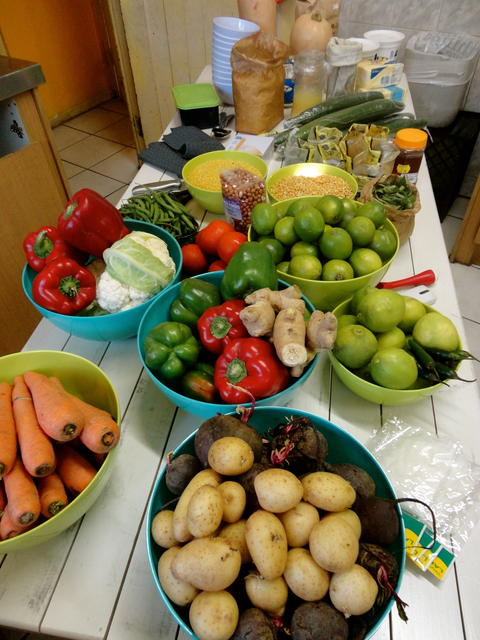
So we wanted to do to these cooking classes with the Ikamva Youth students in Nyanga. We had a few things to contemplate before we got started.

Our background as students from Copenhagen is in global nutrition and health. The question we posed ourselves was: How do you teach about health and nutrition when you come from different cultures and different realities?
Health, what is considered healthy and what the health needs of different people are, is certainly determined by different contexts. In other words, we knew that we couldn’t waltz into Nyanga and tell students how to change their diets and dictate to them what ‘healthy’ is, since the term is so variable and there are other determinants such as household income which affect what people can afford to eat.
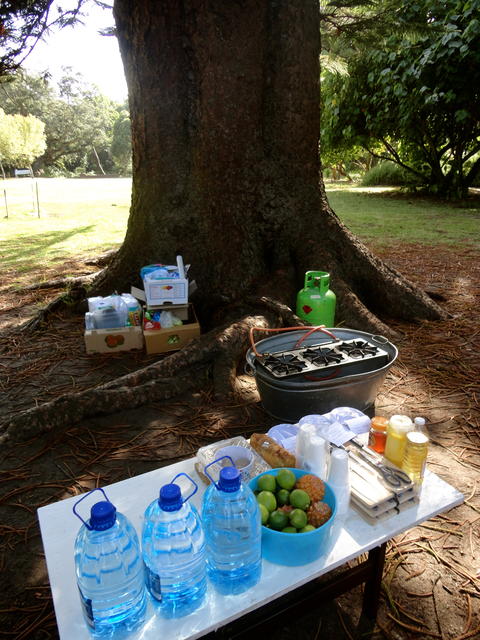
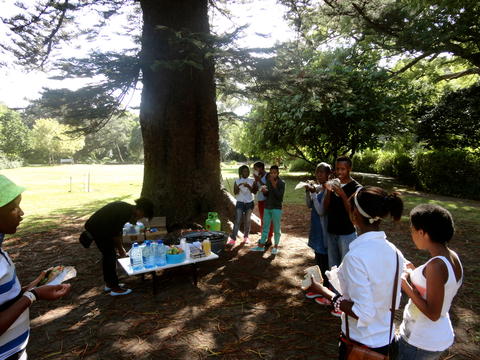
We therefore saw the cooking classes as an opportunity to explore and expose students to different cultures through food. In doing so we hoped to inspire students to broaden their awareness of food culture and ideas around health, simultaneously daring them to stay open minded and try things that seemed foreign to them.
In South Africa different types of foods and meals are associated with different groups of people. White people eat this, Black people eat that, Coloured people eat this and that, Indian people this and so on. By exposing students to different foods and cultural ideas we hoped to invite them to cross these cultural stereotypes and boundaries.
Many ideas. Is our line of thinking relevant? Should one expose students to foods and ingredients that they can’t buy in their immediate environment or can’t even afford?
We think ‘YES’. Exposure to the unfamiliar can assist us in becoming critical thinkers and developing empathy towards other cultures. Most importantly it also allows us to rethink and be critical of cultural stereotypes and fixed definitions of things. Overly idealistic? Perhaps 🙂
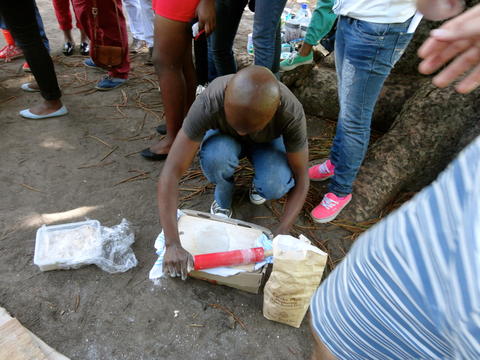
OK so we had an idea and an intention but how were we going to fund this baby? Jesper came up with the brilliant plan to do a fundraising charity event. A Yoga and Lunch charity event in Arderne Gardens, Claremont to be precise. After much planning and spreading the word, we pulled off the event together with the 16 Nyanga students.

The event took place on 17 March 2013 and we were overwhelmed by the support we received! Since we were teaching a yoga class, on the menu for the day was Indian food. We used ingredients such as asafetida (a spice) and ghee (clarified butter), which is at the heart of Indian cooking, in all the dishes me made. The food we prepared was inspired by an Indian woman, Sandhya, who has been making food for Western yoga students for many years in the south of India in Mysore, Karnataka.
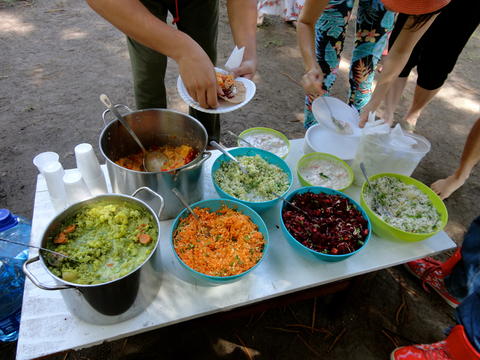

The food was delicious and all the participants wanted the recipes and another homemade chapati to take home. The chapati ‘team‘ kicked butt and made those chapattis like pros – you guys rocked!
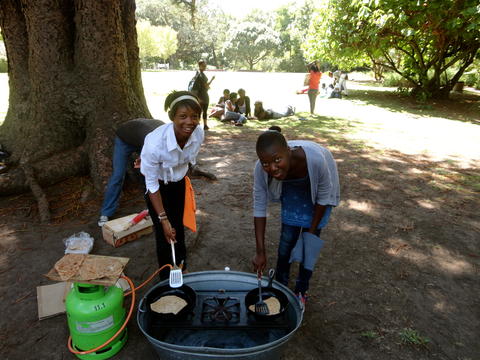
IMMENSE GRATITUDE
In the end we raised R6000 to put towards our cooking classes and we are simply delighted and blown away by the support that we have received.
A huge thank you to all the amazing people who supported our Yoga & Lunch fundraising event! Thank you to IkamvaYouth for the opportunity to work with the students, and thank you to the incredible students.
Thank you all a thousand times over :))
Jesper and Sharline
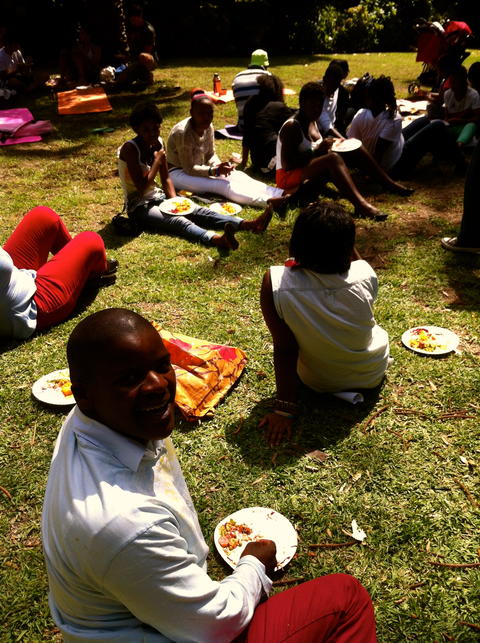
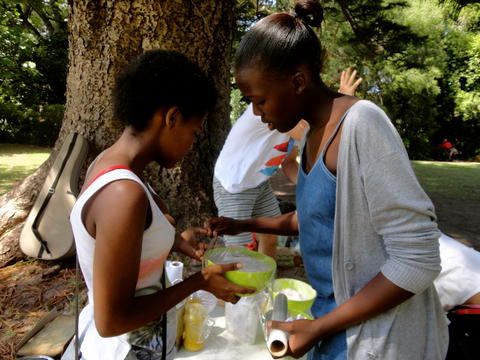
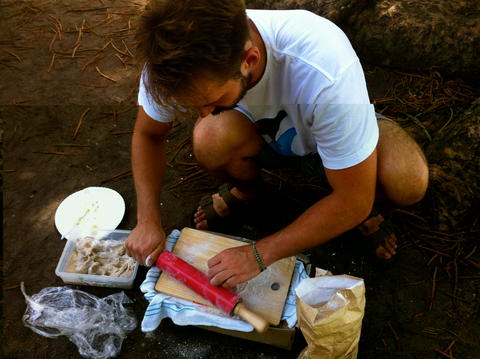
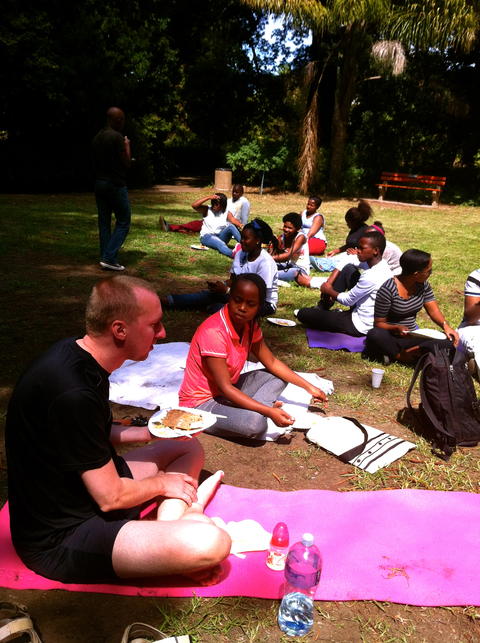
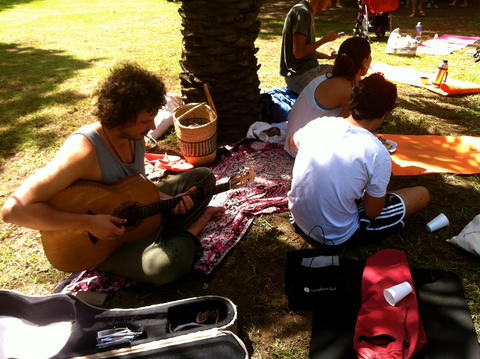

We wanted to do to these cooking classes with the Ikamva Youth students in Nyanga and found that we had a few things to contemplate before we got started.

Our background as students from Copenhagen is in global nutrition and health. The question we posed ourselves was: How do you teach about health and nutrition when you come from different cultures and different realities?
Health, what is considered healthy and what the health needs of different people are, is certainly determined by different contexts. We knew that we could not waltz into Nyanga and tell students how to change their diets and dictate to them what ‘healthy’ is, since the term varies according toa number of determinants such as household income, which affect what people can afford to eat.


We therefore saw the cooking classes as an opportunity to explore and expose students to different cultures through food. In doing so we hoped to inspire students to broaden their awareness of food culture and ideas around health, while simultaneously encouraging them to stay open minded and try cuisines that seemed foreign to them.
In South Africa different types of foods and meals are associated with different groups of people, and certain foods are often considered the diets of some cultures and not others. By exposing students to different foods and cultural ideas we hoped to invite them to cross these cultural stereotypes and boundaries.
We had to work through many ideas at this stage, posing questions such as: Is our line of thinking relevant? Should we expose students to foods and ingredients that they can not buy in their immediate environment and ingredients that they can not afford?
Finally, we decided that it was worthwhile. Exposure to the unfamiliar can assist us in becoming critical thinkers and developing empathy towards other cultures. Most importantly it also allows us to rethink and be critical of cultural stereotypes and fixed definitions of things.

The next big question on our figurative plates was how we were going to fund this exercise. Jesper came up with the brilliant plan to do a fundraising charity event. A Yoga and Lunch charity event in Arderne Gardens, Claremont to be precise. After much planning and spreading the word, we were all set to host the event with the 16 Nyanga students.

The event took place on 17 March 2013 and we were overwhelmed by the support we received! Since we were teaching a yoga class, on the menu for the day was Indian food. We used ingredients such as asafetida (a spice) and ghee (clarified butter), which is at the heart of Indian cooking, in all the dishes me made. The food we prepared was inspired by an Indian woman, Sandhya, who has been making food for Western yoga students for many years in the south of India in Mysore, Karnataka.


The food was delicious and all the participants wanted the recipes and another homemade chapati to take home. The chapati ‘team‘ outdid themselves everyone asked for a second helping of chapati.

IMMENSE GRATITUDE
In the end we raised R6000 to put towards our cooking classes and we are overly delighted and blown away by the support that we have received.
A huge thank you to all the amazing people who supported our Yoga & Lunch fundraising event! Thank you to IkamvaYouth for the opportunity to work with the students, and thank you to the incredible students.
Thank you all a thousand times over :))
Jesper and Sharline


















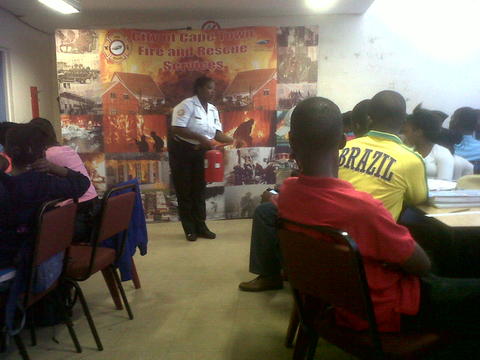

On Saturday 9 March, IkamvaYouth in partnership with Capitec presented a fire safety awareness workshop hosted by Mrs Nombeko Kopele (Public Education Officer) from the fire and rescue services in Ottery, Cape Town. In December 2012, close to a 1000 shacks burnt down in Khayelitsha with countless people being displaced and with winter approaching, a time when the risks of fires increase, it was an opportune time to educate our learners about the dangers that fires pose, but also give them tips on how to avoid these fires.
The presentation were in two parts, first with the grade 10, 11 and 12s and then with the grade 8 and 9s. The reason for this split was because different aspects were discussed with the different age groups. Although the main focus of the workshop was fire safety awareness, it also allowed the presenter to speak to the older kids about the different careers within fire and rescue. This was very exciting for the ikamvanites because they found out that the training to become a fire fighter or paramedic is only 6 months and that it was really physical. They had a lot of questions to ask and the presenter was very knowledgeable and answered all their questions. Lwazi Fanana, a grade 11 learner, said afterwards that he might consider a career in the fire and rescue field. Another learner Sipho Nqgayimbana, grade 12, asked about the different careers within the fire and rescue fields and the presenter said that careers vary from administration, management, medical to paramedical and firefighting, etc., and that there are lots of skills shortages in this career field and with that a lot of opportunities for young people to join.
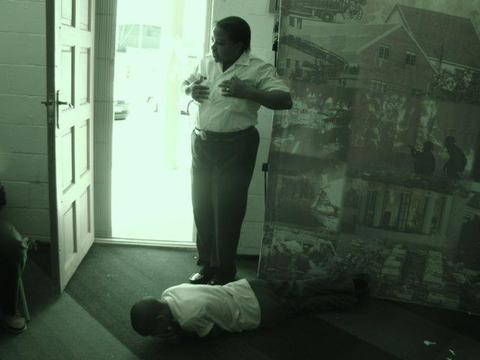
For the younger grades, the focus were more on fire prevention tips, what to do in case of a fire or burn injuries and who to contact when you see a fire. The session with them were more interactive and the ikamvanites were able to simulate scenarios, like rolling on the ground when you catch fire, and were shown charts of what to do. All the ikamvanites were told where their closest fire station is and were told to call 107 or 0215901900 in case of a fire or any other emergency. Everyone had a lot of questions for Mrs Kopele and as with the other group; she was able to answer every question.
We would like to thank the City of Cape Town and in particular Mrs Nombeko Kopele and Mr Abdusalaam Allie, Capitec and everyone that assisted with this workshop.






















 Lloyd Lungu
Lloyd Lungu